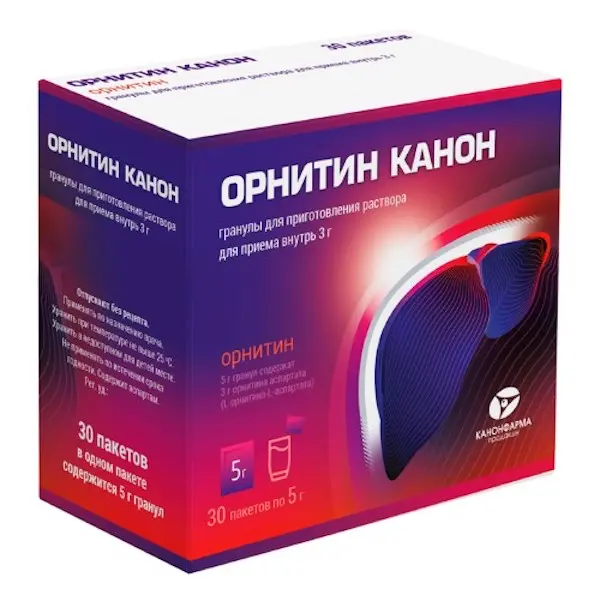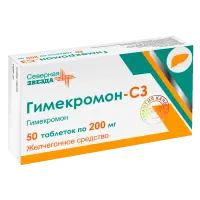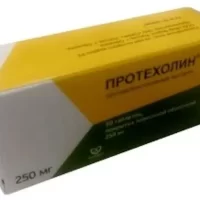Description
Ornithine-Canon Pharmacodynamics
It has detoxifying effect by reducing elevated ammonia levels in the body, in particular in liver diseases. The action of the drug is related to its participation in ornithine cycle of urea formation of Krebs (activates the cycle by restoring the activity of liver cells enzymes: ornithine carbamoyltransferase and carbamoylphosphate synthase).
Promotes the production of insulin and somatotropic hormone. Improves protein metabolism in diseases requiring parenteral nutrition. Helps to reduce asthenic, dyspeptic and pain syndromes, as well as normalization of increased body weight (in steatosis and steatohepatitis).
Indications
Acute and chronic liver disease, accompanied by hyperammonemia.
Hepatic encephalopathy (latent and expressed). Steatosis and steatohepatitis (of different genesis).
Contraindications
Severe renal insufficiency with creatinine index more than 3 mg/100 ml, hypersensitivity to components of the drug, lactation, children under 18 years of age (due to insufficient data).
With caution:
Pregnancy.
Pregnancy and lactation:
The effect of the drug on pregnancy and lactation in humans has not been studied. The drug should not be used during pregnancy, except in cases of extreme necessity when potential benefit to the mother significantly exceeds the potential risk to the fetus.
The drug should not be used during breastfeeding. Breast-feeding should be discontinued if therapy is necessary.
Dosage and administration method
- Inside 1-2 sachets of granules dissolved in 200 ml of liquid, 2-3 times a day after a meal. The course of intake depends on the severity of the disease.





